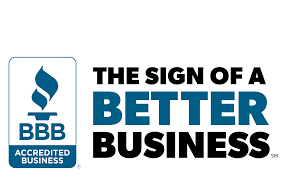HOA fees at closing, or at the end of a home sale transaction, can be a complex matter. Is the seller responsible for HOA fee payments at closing? Or is it the buyer and their closing attorney that should get the HOA closing letter? On the side of the HOA board, the simpler it is to collect unpaid HOA fees at closing, the better. So, let’s look at the finer details of a home sale done with HOA fees due.
HOA Fees At Closing: Who to Collect From?
If you’re thinking about buying a home and moving into a homeowners’ association, you need to consider several things. The HOA is an important part of the quality of life in the community. So, you need to make sure you take the association as a factor in your decision. It’s best to do your homework when it comes to the HOA home you are buying, too.
Who knows, there might be unpaid HOA fees that someone will have to cover, too.
What Are HOA Fees?
 HOA fees, association dues, HOA assessments – all these are part of living in a managed community. Living in an HOA or a condo is super convenient.
HOA fees, association dues, HOA assessments – all these are part of living in a managed community. Living in an HOA or a condo is super convenient.
A lot of things are taken care of for you, and this may include lawn care, maintenance, even utilities. Plus, you also get exclusive amenities that you can use with no additional charge, like gyms, lounges, and community pools. These things cost money, though, and the HOA fees you pay go into maintaining the community.
For the most part, HOA and condo fees cover all the services and amenities you get to enjoy, plus some others that you don’t immediately see. Your fees go into maintenance services, common area utilities, and security expenses. Part of it also goes towards insurance premiums and property management as well. And if your HOA is properly looking out for its finances, part of your HOA fees should go into an HOA reserve fund, too.
What Happens If You Don’t Pay HOA Fees?
The first thing that happens if residents don’t pay HOA fees is that the association then fails to meet its budget. That means it will not have enough money to pay for the budget items for this year. Then, once vendors stop rendering service to the community, conditions in your neighborhood might quickly degrade.
Your common pools don’t get maintained, and your gym equipment doesn’t get repaired. Over time, the aesthetics of the community declines too. Soon, property values will drop as well.
The HOA will not just sit still and let that happen, though. In most cases, the HOA will levy fines for late fees and delinquent dues against a nonpaying resident. The association may have to escalate that by putting a lien on the delinquent resident’s property. A lawsuit might even happen as well.
Overdue HOA Fees at Closing: Who Pays?
When you buy a house that is a part of an HOA, condo, or even a Property Owners Association (POA), fees must be settled at the closing table. After all, that house or condo unit is part of that community, and you as the prospective owner also become an automatic member of the association as well.
How do you find out, as the home buyer, if there are any fees due that are attached to the home? That’s where the closing attorney plays an important role. The closing attorney needs to formally request a closing letter on that home, before the closing date. Generally, associations require that any balance for that home must be paid at the time it is sold. Those should certainly factor into the offer price for the home.
Keep in mind that some HOAs will also require additional initial fees from the buyer as well. The buyer may also need to pay for assessments due at the time of closing, too.
Closing a Home With HOA Fees Due
 In a typical home sale involving unpaid HOA fees, the closing attorney’s role is crucial. The attorney needs to ask for a closing statement on time.
In a typical home sale involving unpaid HOA fees, the closing attorney’s role is crucial. The attorney needs to ask for a closing statement on time.
The HOA board of directors also needs to complete and submit the closing letter on time as well before the closing date. An HOA management company may even be involved, and do the transaction on the board’s behalf.
To deal with the unpaid HOA fees, closing checks then need to be sent, as agreed on in the closing letter. The HOA, then, should be notified of the payment details, so it can record the HOA fee payment. All is well, and the new owner can move in with no problems.
Possible Issues With Unpaid HOA Fees at Closing
However, sometimes one or more of these steps are missed, or miscommunication happens. Then it becomes the HOA board or the HOA Management Company’s responsibility to fix the issue. The first step, as you might expect, starts with checking with the closing attorney. Did the closing attorney properly request the closing letter? Was the new buyer’s information provided in the request accurate and up to date?
Maybe the closing checks just did not clear on time. In that case, things can be as simple as getting in touch with the closing attorney. In most cases, just letting the attorney and the buyer know that the closing checks are still due will suffice. The checks are re-sent or funded properly if they need to, and everything gets settled.
A missing closing letter can be a big issue, however. If the closing of the home sale was done without a request for a closing letter, then it can be a problem.
The HOA board can fix this by first contacting the buyer, and requesting them for a copy of their HUD settlement statement. It’s the standard mortgage lending form that has all the details the HOA will need to look into the matter.
In the HUD, they will be able to find proof of ownership for the buyer, to establish that the sale took place. It will also have the contact information of the closing attorney as well. Thus, they now have a way to contact the person responsible for collecting the unpaid HOA fees at closing.
Collecting Unpaid HOA Fees After Closing
With the HUD information at hand, the HOA board or the management company can now proceed with the next step. Typically, it involves sending out a closing letter for the property – the same one the attorney should have requested in the first place. This letter is sent to the closing attorney, which is now responsible for collecting these fees. Also, this letter will now have a deadline as to when the checks are due.
The closing attorney, in most cases, will write up the checks and submit them immediately to keep things from getting out of hand. In rare cases, however, the closing attorney is unable to pay or refuses to. In this case, the HOA has no recourse but to collect from the new homeowner. The buyer is then free to get in touch with the closing attorney to dispute the charges.
The Importance of Understanding HOA Fees at Closing
It’s important to understand the proper way to handle HOA fees at closing requests for properties within an HOA or COA. This is why it is important for buyers, real estate agents and closing attorneys alike to be familiar with the local and state policies in their area when it comes to closing procedures. This way, everyone can avoid problems on both the selling and buying sides of the deal.






